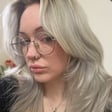
Geoff Finan
Geoff Finan was the Writer in Residence for Dublin City Council for the Dublin North West area in the summer of 2018 and again in 2019 and is currently lecturing in the National College of Art and Design on the module ‘Voices From The Margins’. Last year he had the honour of writing the 100 year commemorative poem celebrating the first Dáil in Ireland, titled ‘January 1919’. Geoff was recently commissioned as part of the First Fortnight Festival to write his most recent piece ‘Gloke’ after working with The Traveling Community for four months. Geoff has also been commissioned by the DCC’s Culture Connects project to write for the Local Heroes initiative and his poem 'A Letter To Leo' was chosen as the flagship piece for the My Name Is campaign, fighting against child homelessness in Ireland.
Geoff has written and performed a poem for the documentary Baristas, which has gone to number 1 in 8 countries, top 10 in the US and top 5 in Canada and the UK, in the documentary charts and is now streaming on Amazon Prime. He was also recently shortlisted for writing and performing in the short film ‘Taboo’. Geoff been featured on RTÉ, TV3, Today Fm, 98 FM, FM104 and Newstalk and in The Sunday Business Post, The Times, The Irish Times and The New York Times.
https://www.instagram.com/thepoetgeoff/



















